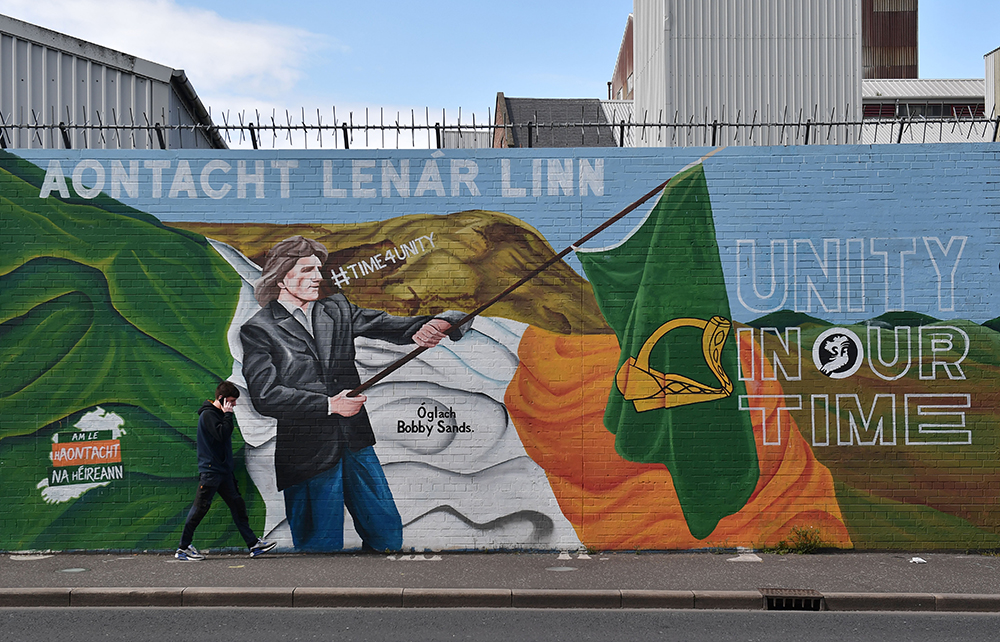A hundred years since the founding of the Irish state – on 6 December 1922 – how likely or desirable is the prospect of Irish unity? The recent electoral success of Sinn Fein suggested to many – particularly in the US – that the idea’s momentum is now unstoppable. Of course it’s being egged on by Sinn Fein itself, whose New York Times advertisements in March proclaimed that Irish unity would be in the best interests of ‘citizens abroad and the wider diaspora’. Extensive polling for the Irish Times this week, however, paints a much more complex, contradictory picture of opinion at home. Before stocking up on celebratory green beer, the Irish-American diaspora might well be advised to read it.
Among those polled in the Republic of Ireland, two-thirds said they would vote for a united Ireland in a border referendum. Yet this number declined when respondents were asked to consider a new Irish flag or national anthem to accommodate unionist citizens: almost half then declared themselves less likely to vote for a united Ireland in the first place. The idea that unionists could veto a new law if they thought it ‘violated their vital interests’ triggered the same effect. The Irish Times characterised the South’s desire for unity as ‘wide, but not deep’. Sinn Fein’s current status as Ireland’s most popular party may owe more to its stance on housing and healthcare than the border.
In Northern Ireland, half of all respondents said they would vote against a united Ireland, with only 27 per cent in favour. The majority opposed were Protestant, at 79 per cent. But a surprisingly large minority of Catholics also refused to back unity, with 21 per cent against and 21 per cent undecided. One reason is the NHS: across the sectarian divide, people fret about losing access to free universal healthcare, even though Northern Ireland’s hospitals are currently in crisis.








Comments
Join the debate for just £1 a month
Be part of the conversation with other Spectator readers by getting your first three months for £3.
UNLOCK ACCESS Just £1 a monthAlready a subscriber? Log in